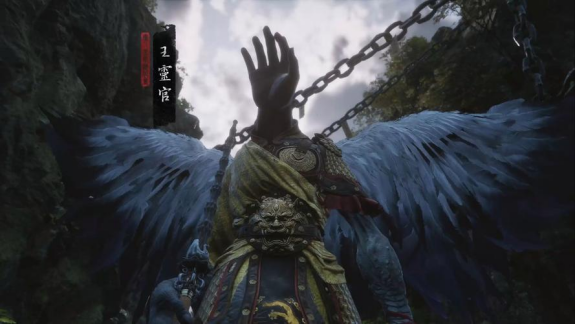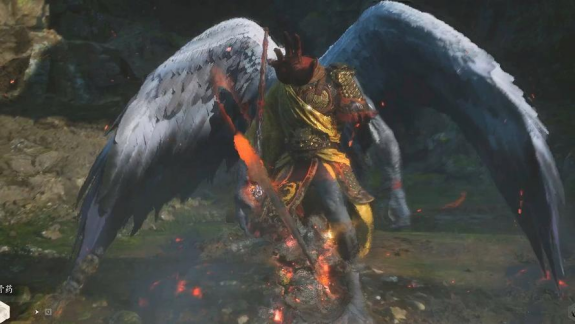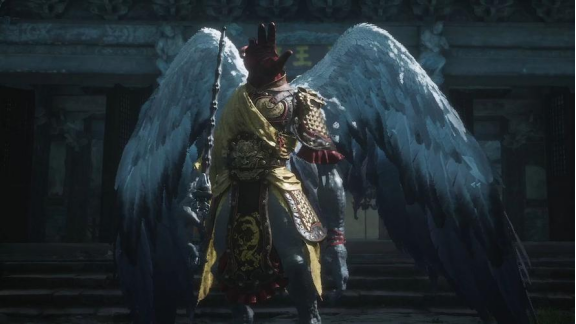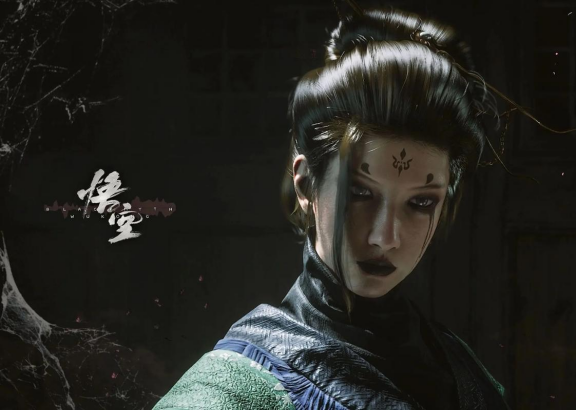In Black Myth: Wukong, the Supreme Inspector is a mysterious character. This section will introduce the character of the Supreme Inspector to the readers.
The Supreme Inspector, originally named Wang E, later changed his name to Wang Shan under the guidance of Master Sa. He is a protective deity in Taoism and a Divine General of the Mountain God. According to the “Comprehensive Record of Immortals Throughout the Ages,” he serves as the Jade Emperor’s chief general, responsible for monitoring affairs in both heaven and earth. Folklore describes him as having “three eyes to observe the world’s affairs, and a whip to rouse the people of the realm.” The Supreme Inspector was born in Yueyang, in Xiangyin County. During the reign of Emperor Huizong of the Song Dynasty, he learned the secret symbols of Taoist spells from the Taoist Priest Sa Shoujian, becoming a direct disciple of the Taoist priest Lin Lingsu. By the Ming Dynasty, he was worshiped by the state and became an important Taoist immortal. The Spiritual Officer is the most revered protective deity in Taoism.

According to the “Complete Investigation of the Three Teachings,” the Supreme Inspector, originally named Wang Shan, served as the City God of Xiangyin County. However, unlike other city gods who protect their regions, Wang Shan demanded the locals to offer live pigs, live sheep, and even young boys and girls to him. When Master Sa Shoujian happened upon this situation during his travels, he was outraged and declared, “This kind of demon should have his temple burned down!” With that, he used a magic spell to incinerate Wang Shan’s City God temple.
With his temple destroyed, the hot-tempered and fierce Wang Shan was not one to let it go easily. He secretly followed Sa Shoujian for twelve years, hoping to seize an opportunity to take his revenge. However, during those twelve years, Sa Shoujian committed no faults, and Wang Shan was eventually impressed by him, finally vowing to follow him as a Guardian deity. Similar accounts can also be found in the writings of Ming Dynasty historians Wang Shizhen and Wang Yunpeng, in their work “Complete Records of Immortals.”

There are many versions of this story, with differing details. One version suggests that Wang Shan was initially named Wang E and changed his name only after turning away from evil. Regardless, the general story remains that the once formidable and fearsome local deity, who later gained great renown as the Supreme Inspector, transformed into a more benevolent figure under the guidance and influence of Master Sa Shoujian.
In Taoism, it is said there are five hundred Spiritual Officers, and the Supreme Inspector is regarded as the leader of these Spiritual Officers, bearing the title of “Great Spiritual Officer of Heaven.”
Many Taoist temples feature the Supreme Inspector as the Guardian deity of the temple’s entrance in their main hall. When entering a Taoist temple, the first hall inside the mountain gate is often the Hall of the Spiritual Officer, where one can find an imposing figure-often depicted with a red face and a beard, draped in golden armor and a red robe, fiercely glaring with three eyes, standing on the Wind and Fire Wheels. In his left hand, he holds a golden seal, and in his right hand, he wields a golden whip. This awe-inspiring figure is the Supreme Inspector, a protective Divine General of Taoism. Facing the mountain gate, the Supreme Inspector possesses a fiery eye capable of discerning truth from falsehood and observing good from evil. Therefore, when Taoists visit the temple, their first act upon entering is to pay homage to the Supreme Inspector, leading to the popular saying among locals, “Before ascending the mountain, first worship the Supreme Inspector,” which reflects the reverence held for this protective deity of Taoism.

The Supreme Inspector is regarded as the foremost Guardian deity of Taoism and is the only Divine General in “Journey to the West” who can match Sun Wukong in combat. According to the “Comprehensive Record of Immortals Throughout the Ages,” the Supreme Inspector serves as the chief general of the Jade Emperor, responsible for both heavenly and earthly matters. He is known as the “God of Thunder, God of Fire, and Demon-Demolishing Deity,” tasked with controlling diseases and purging toxins.
During the early Ming Dynasty, the “Scripture of the Spiritual Officer” stated that during the Jingnan Campaign, the Supreme Inspector manifested to assist in battle. Later, in Beijing, the Baiyun Temple was constructed, which included a dedicated hall for the Spiritual Officer, serving as an important aspect of royal belief.
In some regions, during the Spring Festival or Daoist rituals, a “Procession of the Spiritual Officer” is held, where the deity’s statue is paraded to drive away evil and invite good fortune. On the Supreme Inspector’s birthday (the 15th day of the 6th lunar month), customs such as burning incense and performing divine plays are observed. The image of the Supreme Inspector is widely used in Taoist murals and sculptures, with his fierce demeanor and commanding presence symbolizing “embodiment of justice.” In contemporary films and novels, including adaptations of “Journey to the West,” he often appears as a heavenly general guarding the Southern Heavenly Gate.

The Supreme Inspector symbolizes both martial power in defending Taoism and a moral guardian in spiritual oversight. His worship blends the authority of thunder magic, philosophical cultivation, and secular encouragement of goodness, profoundly reflecting the religious characteristic of Taoism that emphasizes “internal cultivation of life and external eradication of demonic obstacles.” For ordinary devotees, the Supreme Inspector serves not only as a protective deity against evil but also as a psychological support embodying persistent “right-mindedness.”
